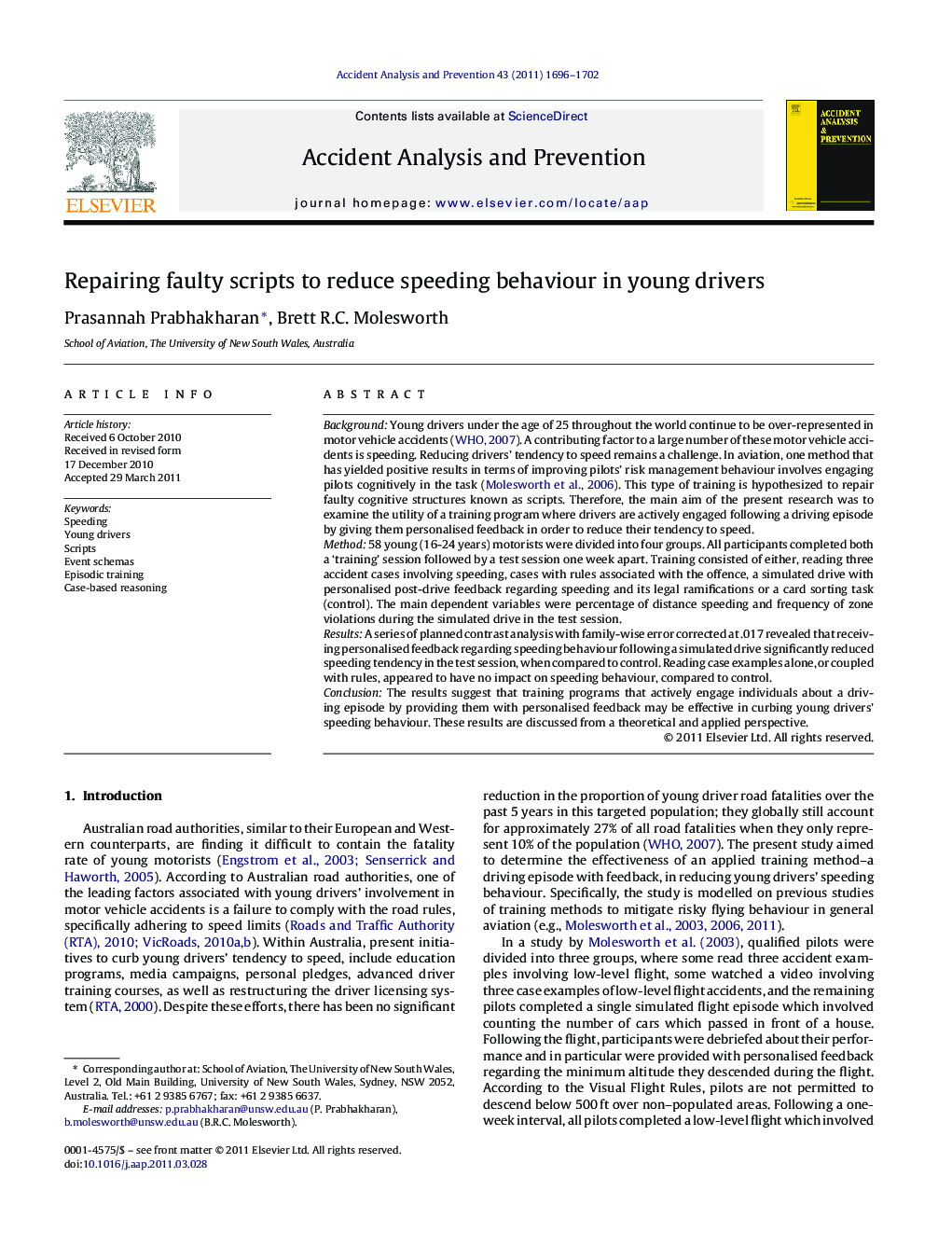| کد مقاله | کد نشریه | سال انتشار | مقاله انگلیسی | نسخه تمام متن |
|---|---|---|---|---|
| 572873 | 877383 | 2011 | 7 صفحه PDF | دانلود رایگان |

BackgroundYoung drivers under the age of 25 throughout the world continue to be over-represented in motor vehicle accidents (WHO, 2007). A contributing factor to a large number of these motor vehicle accidents is speeding. Reducing drivers’ tendency to speed remains a challenge. In aviation, one method that has yielded positive results in terms of improving pilots’ risk management behaviour involves engaging pilots cognitively in the task (Molesworth et al., 2006). This type of training is hypothesized to repair faulty cognitive structures known as scripts. Therefore, the main aim of the present research was to examine the utility of a training program where drivers are actively engaged following a driving episode by giving them personalised feedback in order to reduce their tendency to speed.Method58 young (16-24 years) motorists were divided into four groups. All participants completed both a ‘training’ session followed by a test session one week apart. Training consisted of either, reading three accident cases involving speeding, cases with rules associated with the offence, a simulated drive with personalised post-drive feedback regarding speeding and its legal ramifications or a card sorting task (control). The main dependent variables were percentage of distance speeding and frequency of zone violations during the simulated drive in the test session.ResultsA series of planned contrast analysis with family-wise error corrected at .017 revealed that receiving personalised feedback regarding speeding behaviour following a simulated drive significantly reduced speeding tendency in the test session, when compared to control. Reading case examples alone, or coupled with rules, appeared to have no impact on speeding behaviour, compared to control.ConclusionThe results suggest that training programs that actively engage individuals about a driving episode by providing them with personalised feedback may be effective in curbing young drivers’ speeding behaviour. These results are discussed from a theoretical and applied perspective.
► Episodic training is an effective method in reducing speeding in young drivers.
► Speeding may partly be due to faults in scripts (event schemas) that model behaviour.
► Effectiveness of this training is attributed to its ability to repair these structures.
Journal: Accident Analysis & Prevention - Volume 43, Issue 5, September 2011, Pages 1696–1702